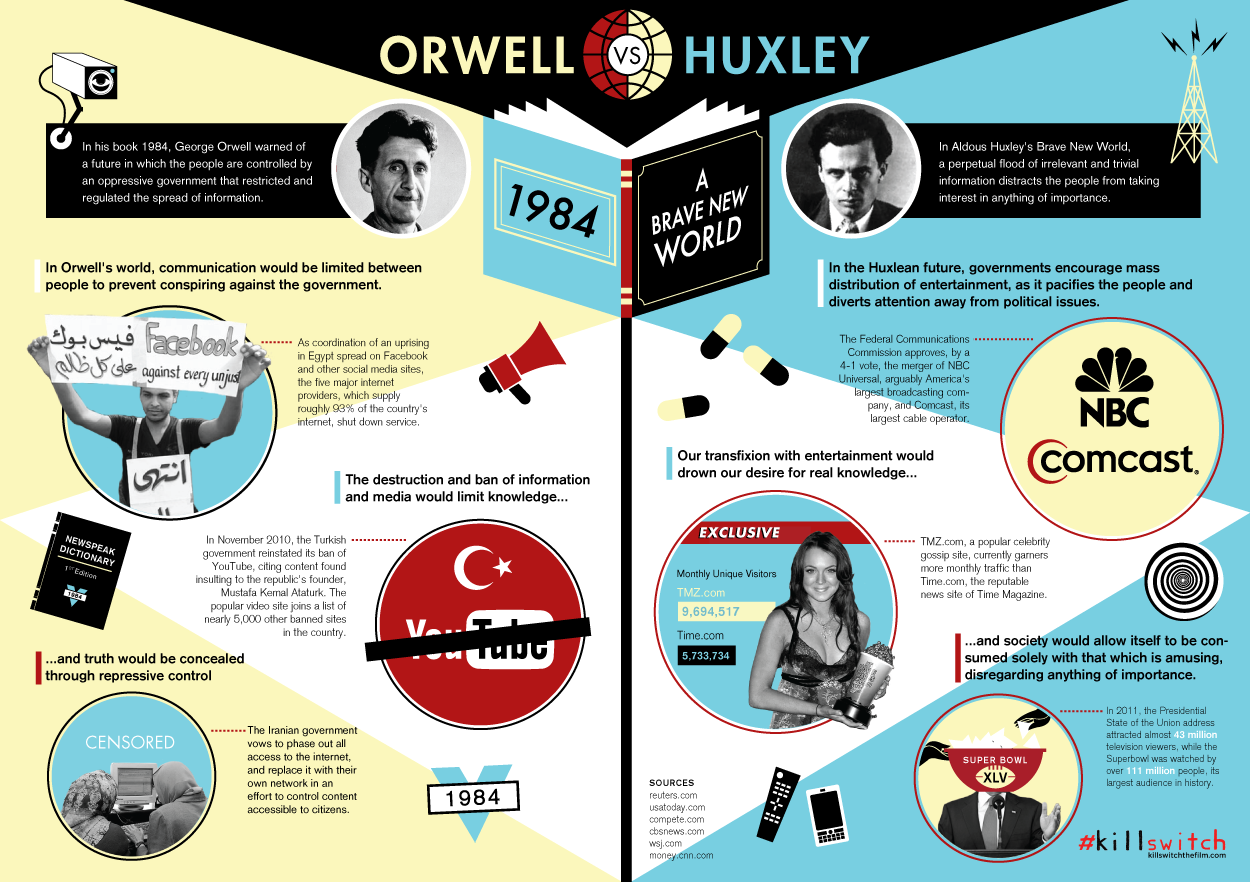@Renegade opened a discussion thread back in 2010-06-27:
Obama Can Shut Down Internet For 4 Months Under New Emergency Powers
President Obama will be handed the power to shut down the Internet for at least four months without Congressional oversight if the Senate votes for the infamous Internet ‘kill switch’ bill, which was approved by a key Senate committee yesterday and now moves to the floor...
...While media and public attention is overwhelmingly focused on the BP oil spill, the establishment is quietly preparing the framework that will allow Obama, or indeed any President who follows him, to bring down a technological iron curtain that will give the government a foot in the door on seizing complete control over the Internet...
...Indeed, China uses similar rhetoric about the need to maintain “security” and combating cyber warfare by regulating the web, when in reality their entire program is focused around silencing anyone who criticizes the state.
Ahem... Do the words
[Rude expletive removed]
have any meaning?
Sneaky, and dangerous.
Why is every year 1984 lately?
-Renegade
I didn't really pay it much mind at the time, thinking that you could probably "read too much" into things like this, if you were skeptical of Big Government motivation.
But a response from
@mrainey asked the question:
Why does every political event or medical event, or even current event, spawn a dozen different conspiracy theories?
...
-mrainey
And an interesting discussion ensued.
Since then, there have been numerous related issues raised and discussed in DCF, including, for example (and in no particular order):
- and quite a lot more besides that.
So the whole subject of the "freedom of the Internet" (or whatever it could be called) would seem to be of concern to several DCF members, to the extent that it seems to be necessarily occupying our collective cognitive surplus, and the site was blacked out in the SOPA protest.
And now this month has seen the moving of the SECURE IT Act (cybersecurity bill) through the US Senate.
So it
isn't going to stop. And there are all sorts of justifications (alleged "good reasons") for this, from lobbyists and other proponents of proposed Internet regulation and legislation. It looks like a steady, remorseless creep across the domain of Internet freedom will be the order of the day.
So what did the SOPA protest blackout achieve? Maybe it slowed it's more rapid progress down to a creep in the first place?
Is there a conspiracy? Arguably, yes, there could seem to be.
But, being skeptical, I don't think that would necessarily be correct.
I was gathering some references to George Orwell, and I chanced across this graphic, in a website
#killswitch the film. The graphic draws a contrast between Orwell's
1984 vs. Huxley's
Brave New World in the context of Internet freedom.
(Large image so as you can read what's written on it.)

Reading it, I realised that all of what each of the authors had predicted as per this diagram apparently
already had taken place and/or was taking place. That is, not one versus the other at all.
If this was true, then was it evidence of a conspiracy?
Again, arguably, yes, there could seem to be.
But again, being skeptical, I don't think that would necessarily be correct.
It seems to me that there is a melding of Orwell/Huxley ("Huxwellianism"?) religio-political ideology. Whilst it might be possible to get everybody arranged to collaborate on a concerted attack on and breach of the Constitution and its Amendments, the simpler truth might be that that could be far too difficult a thing to achieve.
It might be much more likely that times and events are such that several disparate interests have arisen which have different objectives but a coincidentally common vector.
Or, I suppose, it could still be a conspiracy in fact, but dressed up to make it look like it
wasn't a conspiracy!



Either way, my suspicion is that it's beginning to look like Internet freedom is going to be stopped/suppressed, whether we like it or not - as
@Renegade suggests in one of the above links. And there's not much we will be able to do about it except protest as it is chopped up limb-by-limb in exemplary fashion in front of us.
As @Renegade put it:
...It's not a conspiracy when it's right out in the open for everyone to see...
-Renegade
FidoNet/SkyNet begin to look like more attractive approaches as each day dawns.

 Recent Posts
Recent Posts


